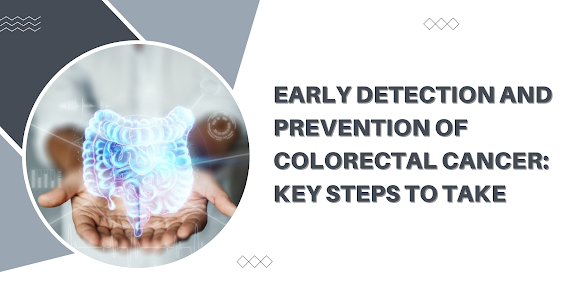Early Detection and Prevention of Colorectal Cancer: Key Steps to Take
Colorectal cancer is a serious health concern that affects thousands of individuals worldwide. The good news is that early detection and prevention can significantly increase the chances of successful treatment and recovery. In this article, we will explore the key steps you can take to detect and prevent colorectal cancer.
Understanding Colorectal Cancer
Colorectal cancer refers to the presence of abnormal cells in the colon or rectum, which are parts of the digestive system. It often starts as small growths called polyps, which can develop into cancer over time. Detecting and removing these polyps early can prevent the progression to cancer.
Step 1: Know Your Risks
Understanding your risk factors for colorectal cancer is crucial. With the majority of instances occurring in people over 50, age is a key risk factor. Other risk factors include a family history of colorectal cancer, personal history of inflammatory bowel disease, and certain genetic conditions.
Step 2: Recognize the Symptoms
Being aware of the common symptoms of colorectal cancer is essential for early detection. These symptoms may include persistent changes in bowel habits, rectal bleeding, abdominal pain or discomfort, unexplained weight loss, and fatigue. If you have any of these symptoms, it is critical that you see a doctor for additional assessment.
Step 3: Regular Screenings
Routine screenings are crucial for the early detection of colorectal cancer. The most common screening methods include colonoscopies, fecal occult blood tests (FOBT), and flexible sigmoidoscopies. These tests allow healthcare professionals to identify any abnormalities in the colon and rectum, including polyps or cancerous cells.
Step 4: Maintain a Healthy Lifestyle
Adopting a healthy lifestyle can play a significant role in preventing colorectal cancer. This includes consuming a balanced diet rich in fruits, vegetables, and whole grains while limiting the consumption of processed foods and red meat. Regular exercise and maintaining a healthy weight are also important factors in reducing the risk of colorectal cancer.
Step 5: Avoid Tobacco and Limit Alcohol Consumption
Smoking and heavy alcohol intake have been related to an increased risk of colorectal cancer. Quitting smoking and reducing alcohol intake can significantly lower your chances of developing the disease. If you need support in quitting smoking or reducing alcohol consumption, speak with your Colorectal Cancer Specialist in Coimbatore for guidance and resources.
Step 6: Stay Informed and Get Vaccinated
It is important to stay informed about the latest advancements in colorectal cancer prevention and treatment. Additionally, the human papillomavirus (HPV) vaccine has been shown to reduce the risk of certain types of colorectal cancer, so ensure you are up to date with your vaccinations.
Conclusion
Early detection and prevention are key in the fight against colorectal cancer. By understanding your risks, recognizing symptoms, undergoing regular screenings, maintaining a healthy lifestyle, avoiding tobacco and excessive alcohol consumption, and staying informed, you can take proactive steps to protect yourself against this disease. When it comes to your health, remember that knowledge is power.




Comments
Post a Comment